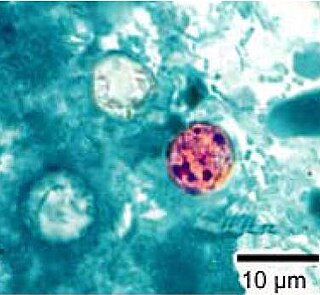
Plastic surgery is a surgical specialty involving the restoration, reconstruction, or alteration of the human body. It can be divided into two main categories: reconstructive surgery and cosmetic surgery. Reconstructive surgery covers a wide range of specialties, including craniofacial surgery, hand surgery, microsurgery, and the treatment of burns. This category of surgery focuses on restoring a body part or improving its function. In contrast, cosmetic surgery focuses solely on improving the physical appearance of the body. A comprehensive definition of plastic surgery has never been established, because it has no distinct anatomical object and thus overlaps with practically all other surgical specialties. An essential feature of plastic surgery is that it involves the treatment of conditions that require or may require tissue relocation skills.

Surgery is a medical specialty that uses manual and instrumental techniques to diagnose or treat pathological conditions, to alter bodily functions, to reconstruct or alter aesthetics and appearance, or to remove unwanted tissues or foreign bodies.

An appendectomy or appendicectomy is a surgical operation in which the vermiform appendix is removed. Appendectomy is normally performed as an urgent or emergency procedure to treat complicated acute appendicitis.

Matamoros, officially known as Heroica Matamoros, is a city in the northeastern Mexican state of Tamaulipas, and the municipal seat of the homonymous municipality. It is on the southern bank of the Rio Grande, directly across the border from Brownsville, Texas, United States. Matamoros is the second largest city in the state of Tamaulipas. As of 2016, Matamoros had a population of 520,367. In addition, the Matamoros–Brownsville Metropolitan Area has a population of 1,387,985, making it the 4th largest metropolitan area on the Mexico–US border. Matamoros is the 39th largest city in Mexico and anchors the second largest metropolitan area in Tamaulipas.

Breast augmentation and augmentation mammoplasty is a cosmetic surgery procedure, which uses breast-implants and/ or fat-graft mammoplasty technique to increase the size, change the shape, and alter the texture of the breasts. Although in some cases augmentation mammoplasty is applied to correct congenital defects of the breasts and the chest wall in other cases it is performed purely for cosmetic reasons.
Medical tourism is the practice of traveling abroad to obtain medical treatment. In the past, this usually referred to those who traveled from less-developed countries to major medical centers in highly developed countries for treatment unavailable at home. However, in recent years it may equally refer to those from developed countries who travel to developing countries for lower-priced medical treatments. With differences between the medical agencies, such as the Food and Drug Administration (FDA) or the European Medicines Agency (EMA), etc., which decide whether a drug is approved in their country or region, or not, the motivation may be also for medical services unavailable or non-licensed in the home country.
A complication in medicine, or medical complication, is an unfavorable result of a disease, health condition, or treatment. Complications may adversely affect the prognosis, or outcome, of a disease. Complications generally involve a worsening in the severity of the disease or the development of new signs, symptoms, or pathological changes that may become widespread throughout the body and affect other organ systems. Thus, complications may lead to the development of new diseases resulting from previously existing diseases. Complications may also arise as a result of various treatments.

Fungal infection, also known as mycosis, is a disease caused by fungi. Different types are traditionally divided according to the part of the body affected; superficial, subcutaneous, and systemic. Superficial fungal infections include common tinea of the skin, such as tinea of the body, groin, hands, feet and beard, and yeast infections such as pityriasis versicolor. Subcutaneous types include eumycetoma and chromoblastomycosis, which generally affect tissues in and beneath the skin. Systemic fungal infections are more serious and include cryptococcosis, histoplasmosis, pneumocystis pneumonia, aspergillosis and mucormycosis. Signs and symptoms range widely. There is usually a rash with superficial infection. Fungal infection within the skin or under the skin may present with a lump and skin changes. Pneumonia-like symptoms or meningitis may occur with a deeper or systemic infection.

Gluteoplasty denotes the plastic surgery and the liposuction procedures for the correction of congenital, traumatic, and acquired defects/deformities of the buttocks and the anatomy of the gluteal region; and for the aesthetic enhancement of the contour of the buttocks.

Labiaplasty is a plastic surgery procedure for creating or altering the labia minora and the labia majora, the folds of skin of the human vulva. It is a type of vulvoplasty. There are two main categories of women seeking cosmetic genital surgery: those with conditions such as intersex, and those with no underlying condition who experience physical discomfort or wish to alter the appearance of their vulvas because they believe they do not fall within a normal range.

Cyclospora cayetanensis is a coccidian parasite that causes a diarrheal disease called cyclosporiasis in humans and possibly in other primates. Originally reported as a novel pathogen of probable coccidian nature in the 1980s and described in the early 1990s, it was virtually unknown in developed countries until awareness increased due to several outbreaks linked with fecally contaminated imported produce. C. cayetanensis has since emerged as an endemic cause of diarrheal disease in tropical countries and a cause of traveler's diarrhea and food-borne infections in developed nations. This species was placed in the genus Cyclospora because of the spherical shape of its sporocysts. The specific name refers to the Cayetano Heredia University in Lima, Peru, where early epidemiological and taxonomic work was done.

Fusarium solani is a species complex of at least 26 closely related filamentous fungi in the division Ascomycota, family Nectriaceae. It is the anamorph of Nectria haematococca. It is a common soil inhabiting mold. Fusarium solani is implicated in plant diseases as well as in serious human diseases such as fungal keratitis.
Saint Thomas West Hospital, formerly Saint Thomas Hospital, is a 541-acute-care-bed health care facility located in Nashville, Tennessee, United States. The hospital sees 21,388 total admissions and 32,000 emergency department visits annually.

Fungal meningitis refers to meningitis caused by a fungal infection.

The 2009 swine flu pandemic in North America, part of a pandemic in 2009 of a new strain of influenza A virus subtype H1N1 causing what has been commonly called swine flu, began in the United States or Mexico.

A New England Compounding Center meningitis outbreak that began in September 2012 sickened 798 individuals and resulted in the deaths of more than 100 people. In September 2012, the Centers for Disease Control and Prevention, in collaboration with state and local health departments and the Food and Drug Administration (FDA), began investigating a multistate outbreak of fungal meningitis and other infections among patients who had received contaminated steroid injections from the New England Compounding Center (NECC) in Framingham, Massachusetts. The NECC was classified as a compounding pharmacy. The traditional role of compounding pharmacies is to make drugs prescribed by doctors for specific patients with needs that can't be met by commercially available drugs.

Ebola virus disease in Mali occurred in October 2014, leading to concern about the possibility of an outbreak of Ebola in Mali. A child was brought from Guinea and died in the northwestern city of Kayes. Mali contact traced over 100 people who had contact with the child; tracing was completed in mid-November with no further cases discovered. In November, a second unrelated outbreak occurred in Mali's capital city, Bamako. Several people at a clinic are thought to have been infected by a man traveling from Guinea. On January 18, Mali was declared Ebola-free after 42 days with no new cases. There had been a cumulative total of eight cases with six deaths.

Amid the COVID-19 pandemic, anti-abortion government officials in several American states enacted or attempted to enact restrictions on abortion, characterizing it as a non-essential procedure that can be suspended during the medical emergency. The orders have led to several legal challenges and criticism by abortion-rights groups and several national medical organizations, including the American Medical Association. Legal challenges on behalf of abortion providers, many of which are represented by the American Civil Liberties Union and Planned Parenthood, have successfully stopped some of the orders on a temporary basis, though bans in several states have not been challenged.

The 2022–2023 mpox outbreak in the United States was part of the larger outbreak of human mpox caused by the West African clade of the monkeypox virus. The United States was the fourth country outside of the African countries with endemic mpox to experience an outbreak in 2022. The first case was documented in Boston, Massachusetts, on May 17, 2022. As of August 2022, mpox had spread to all 50 states in the United States, as well as Washington, D.C., and Puerto Rico. The United States had the highest number of mpox cases in the world during the outbreak. California had the highest number of mpox cases in the United States.

The 2022–2023 mpox outbreak in Mexico is part of the larger outbreak of human mpox caused by the West African clade of the monkeypox virus. Mexico is the twenty-fourth country outside of Africa to experience an endemic mpox outbreak. The first case was reported in Mexico City, Mexico, on May 28, 2022. As of December 8th 2022, Mexico had confirmed a total of 3455 cases in all 32 states and 4 deaths.















